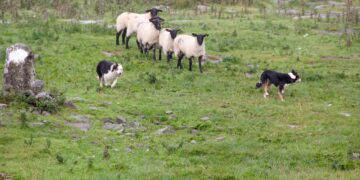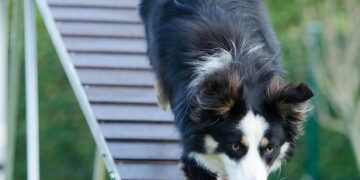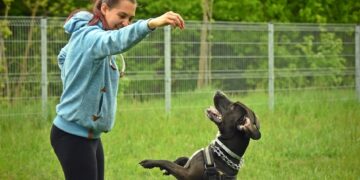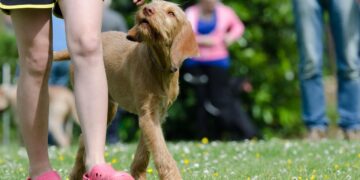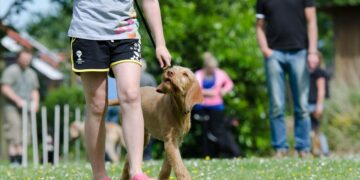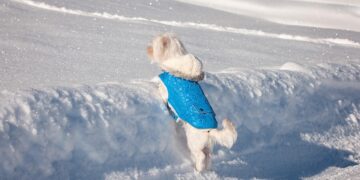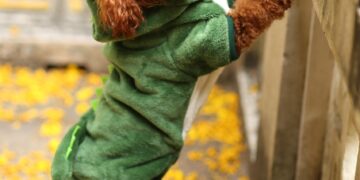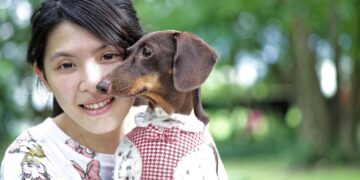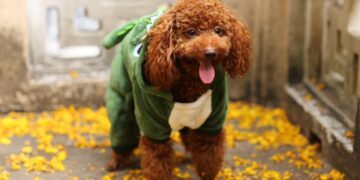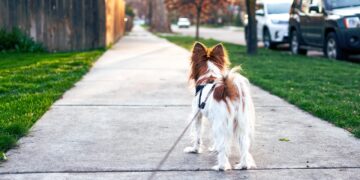Unlock the Secret to a Happier Pup: Dog Socialization Classes Explained
Have you ever wondered why some dogs seem effortlessly happy and well-behaved around both people and other dogs, while others appear shy or aggressive? A key ingredient to a cheerful and sociable canine is effective dog socialization. Transformative for your furry friend’s emotional wellness and behavioral traits, dog socialization classes are vital in nurturing well-adjusted, confident, and happy dogs. Let’s explore what these classes entail and how they can benefit your four-legged companion.
What is Dog Socialization?
Dog socialization involves exposing your pup to a variety of experiences, environments, people, and other animals during their formative years, typically before they turn 18 weeks old. It is a crucial phase where positive encounters help them learn that the world is a fun and safe place. The goal is to foster a well-rounded dog capable of handling different situations and preventing the development of fear and anxiety.
Why Choose Dog Socialization Classes?
The Foundation of Fear-Free Futures
Encounters in dog socialization classes are structured and controlled, offering a safe setting for young pups to meet new friends — both canine and human — and learn how to interact appropriately. It helps in preventing future behavioral problems such as aggression, fearfulness, and anxiety. By practicing positive interactions, dogs learn to navigate the social complexities of their world with ease.
Building Blocks of Behavioral Health
Dog socialization classes don’t just prevent negative behaviors; they also promote positive traits such as confidence, joy, and adaptability. Think of it as setting the stage for your pup’s future. Consistent positive interactions can reduce stress in unfamiliar situations, making it easier for them to adjust to various life changes like moving homes, visiting the vet, or encountering new people.
When and How to Enroll in Dog Socialization Classes
Timing is Everything
The ideal time to start socialization is as soon as your vet clears your pup for interaction with other dogs, typically around 8 to 12 weeks of age. This period is when puppies are most receptive to new experiences, and it’s critical to capitalize on this natural curiosity.
Choosing the Right Class
Look for classes that prioritize safe and positive interactions. Trainers should be certified and experienced in handling puppies and creating a supportive learning environment. Classes should offer a mix of playtime, obedience learning, and exposure to new stimuli (sounds, objects, etc.).
What to Expect During Classes
During dog socialization classes, expect various structured activities designed to gently introduce your pup to different stimuli. A typical session might include:
- Controlled play sessions with other dogs
- Introduction to new people of varying appearances and sizes
- Familiarization with different sounds and environments
- Basic obedience training
- Individual and group activities that encourage positive social behavior
Such structured exposures ensure your pup learns and begins to generalize that ‘new’ or ‘different’ doesn’t necessarily mean scary or threatening.
How to Supplement Dog Socialization Classes at Home
To make the most of dog socialization classes, reinforce learned behaviors at home. Here’s how:
- Regularly introduce your pup to new people and safe environments.
- Keep each new interaction short and positive, using treats and praises as rewards.
- Gradually expose them to different noises and textures at home — play audio clips of urban noises, or have them walk on carpets, tiles, and metal surfaces.
- Continue practicing commands and cues learned during classes to maintain consistency.
Overcoming Challenges
It’s not uncommon for some pups to feel overwhelmed during early sessions. If your dog seems stressed, step back and slow down. Work closely with your trainer to adapt the pace. Always remember, the goal is a positive experience, not pushing your pup beyond their comfort zone.
Concluding Thoughts: A Lifetime of Benefits
Dog socialization classes offer more than just immediate behavioral benefits; they set your pup up for a lifetime of happiness and adaptability. Through these classes, puppies learn to navigate the social intricacies of their environment, making them more accommodating and less prone to stress as they grow.
In conclusion, dog socialization classes are an invaluable investment in your dog’s future, paving the way for a healthier, happier, and more sociable companion. Enrolling your pup offers them the best start in life, ensuring they grow up to be well-rounded, confident, and joyful dogs.







